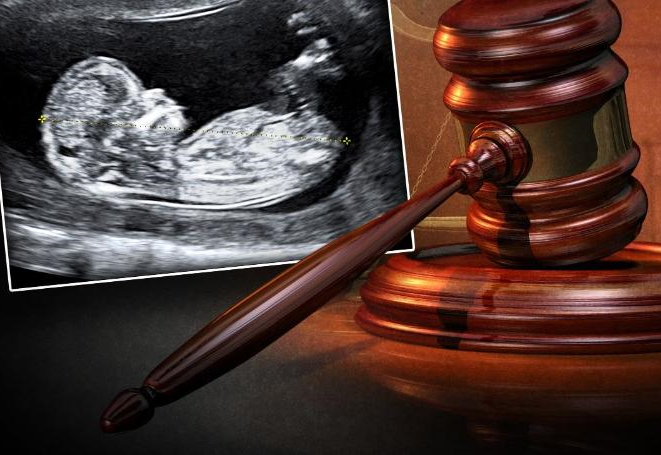After months of internal deliberation, in a one-line notice the U.S. Supreme Court this morning announced that the justices had agreed to hear (“grant certiorari”) the appeal by the state of Mississippi in the case of its “Gestational Age Act,” a law enacted in 2018, but blocked by Judge Carlton W. Reeves of Federal District Court in Jackson, Mississippi. Judge Reeves’s decision in Dobbs v. Jackson Women’s Health Organization was subsequently upheld by a three judge panel of the U.S. Court of Appeals for the 5th Circuit.
As several reports noted, however, even though the appeals court panel was unanimous, Judge James Ho “issued a reluctant concurring opinion expressing misgivings about the Supreme Court’s abortion jurisprudence,” The New York Times’ Adam Liptak explained. Judge Ho wrote, “Nothing in the text or original understanding of the Constitution establishes a right to an abortion,” adding, “Rather, what distinguishes abortion from other matters of health care policy in America — and uniquely removes abortion policy from the democratic process established by our Founders — is Supreme Court precedent.”
Judge Ho went on to write that he was “deeply troubled by how the district court [Judge Reeves] handled this case. The opinion issued by the district court displays an alarming disrespect for the millions of Americans who believe that babies deserve legal protection during pregnancy as well as after birth, and that abortion is the immoral, tragic, and violent taking of innocent human life.”
Judge Ho concluded that “it adds insult to injury” for “a federal court to go further and to impugn the motives of those good faith Americans. When that occurs, citizens may rightfully wonder whether judges are deciding disputes based on the Rule of Law or on an altogether different principle. Replacing the Rule of Law with a regime of Judges Know Better is one that neither the Founders of our country nor the Framers of our Constitution would recognize.”
Click here to sign up for pro-life news alerts from LifeNews.com
The Supreme Court said it would address one of the three questions posed to the justices by Lynn Fitch, the Mississippi Attorney General: “whether all pre-viability prohibitions on elective abortion are unconstitutional.”
As National Right to Life’s Jennifer Popik, J.D., federal legislative director, explained in NRLC’s press release, “But there is, of course, precedent in the Court’s jurisprudence for prohibiting abortions before viability. The 2003 Partial-Birth Abortion Ban Act banned a particular abortion procedure that was used both before and after what is considered viability. It was found to be constitutional by the U.S. Supreme Court in 2007.”
She added, “The NRLC-led debate over partial-birth abortions broke new ground in the abortion debate and the constitutional finding by the Court clearly paved the way for future rulings.”
Lynn Fitch, Mississippi’s attorney general, urged the justices to conclude “‘Viability’ is not an appropriate standard for assessing the constitutionality of a law regulating abortion.”
After listing a number of interests the state has in the performance of abortion, AG Fitch’s amicus argues
Given these important interests, Mississippi’s Gestational Age Act brings into sharp focus the conflict between this Court’s suggestion that states cannot prohibit pre-viability abortions, and the Court’s repeated admonition that states have legitimate interests “from the outset of pregnancy in protecting [1] the health of the mother and [2] the life of the fetus that may become a child, and [3] avoiding ‘coarsen[ing] society to the humanity of not only newborns but all vulnerable and innocent life. [italics in original; internal citations omitted].
Dobbs v. Jackson Women’s Health Organization will be heard in the fall.
LifeNews.com Note: Dave Andrusko is the editor of National Right to Life News and an author and editor of several books on abortion topics. This post originally appeared in his National Right to Life News Today —- an online column on pro-life issues.








